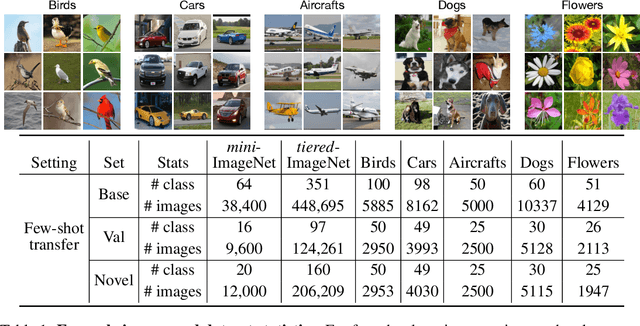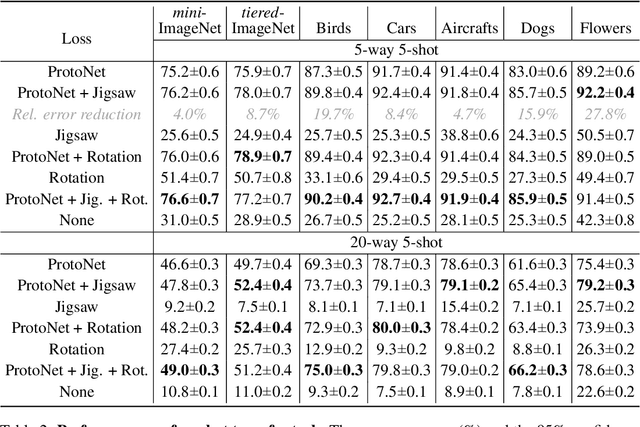When Does Self-supervision Improve Few-shot Learning?
Paper and Code
Oct 08, 2019



We present a technique to improve the generalization of deep representations learned on small labeled datasets by introducing self-supervised tasks as auxiliary loss functions. Although recent research has shown benefits of self-supervised learning (SSL) on large unlabeled datasets, its utility on small datasets is unknown. We find that SSL reduces the relative error rate of few-shot meta-learners by 4%-27%, even when the datasets are small and only utilizing images within the datasets. The improvements are greater when the training set is smaller or the task is more challenging. Though the benefits of SSL may increase with larger training sets, we observe that SSL can have a negative impact on performance when there is a domain shift between distribution of images used for meta-learning and SSL. Based on this analysis we present a technique that automatically select images for SSL from a large, generic pool of unlabeled images for a given dataset using a domain classifier that provides further improvements. We present results using several meta-learners and self-supervised tasks across datasets with varying degrees of domain shifts and label sizes to characterize the effectiveness of SSL for few-shot learning.
 Add to Chrome
Add to Chrome Add to Firefox
Add to Firefox Add to Edge
Add to Edge